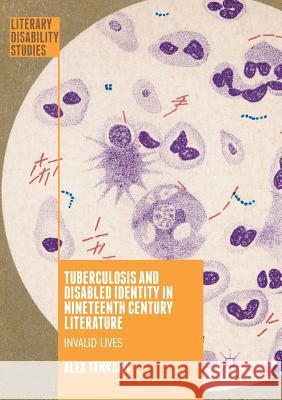Tuberculosis and Disabled Identity in Nineteenth Century Literature: Invalid Lives » książka
topmenu
Tuberculosis and Disabled Identity in Nineteenth Century Literature: Invalid Lives
ISBN-13: 9783319890746 / Angielski / Miękka / 2019 / 238 str.
Kategorie:
Kategorie BISAC:
Wydawca:
Palgrave MacMillan
Seria wydawnicza:
Język:
Angielski
ISBN-13:
9783319890746
Rok wydania:
2019
Wydanie:
Softcover Repri
Ilość stron:
238
Waga:
0.30 kg
Wymiary:
21.01 x 14.81 x 1.35
Oprawa:
Miękka
Wolumenów:
01
Dodatkowe informacje:
Wydanie ilustrowane











